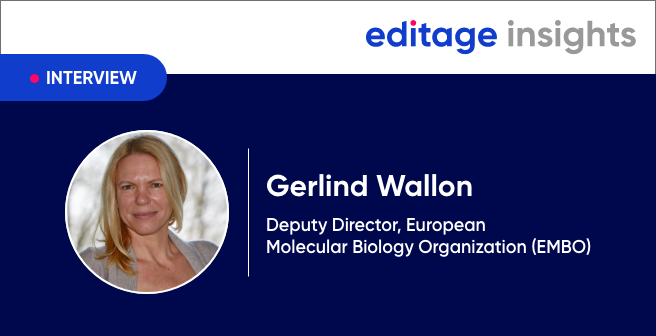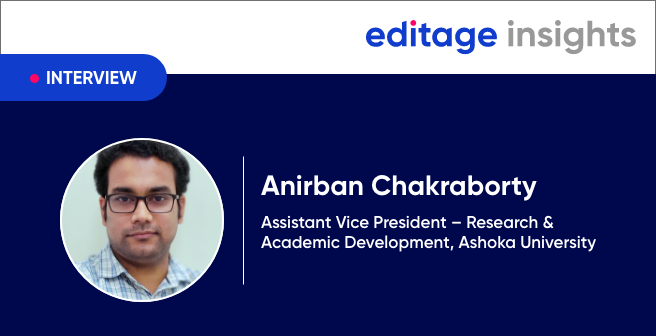“Stay focused on why you want to publish your manuscript.”

After obtaining a PhD in Biochemistry from the University of Missouri, Columbia, in 1999, Yurii Chinenov joined one of the Howard Hughes Medical Institute (HHMI) laboratories as a postdoc. The atmosphere at the HHMI encourages independent research. Most importantly, Yurii’s mentor encouraged independent publishing. As a consequence, Yurii had the opportunity to “face the world of scientific publishing, deal with editors, reviewers, and all the other seemingly scary processes much earlier than your average young scientist.” By the time Yurii left HHMI he had already authored two independent theoretical papers. Today, he has 20 published articles and has 17 years of editorial and writing experience.
How did you decide to enter the field of academic publishing?
Throughout my scientific career, it has struck me repeatedly that if science can be communicated directly and simply, its message would reach and inspire a much wider audience. In informally editing my colleagues or students’ papers, I had often found this clarity of communication lacking. It seemed a natural step to progress to a career in which I could use both my scientific knowledge and my communication skills.
How did you decide to enter the field of academic publishing?
I ventured into academic publishing perhaps in the same way as many of my colleagues did¾by publishing my own manuscripts; reviewing papers written by my peers; writing, reading and commenting on or editing grant proposals, job applications, progress reports, animal protocols, and recommendation letters: academia is a very writing-intensive world. The more you read (and, I suppose, write) the more often you notice recurrent but easily correctable issues that significantly decrease a manuscript’s chances of acceptance. When I noticed a freelance job posting from Editage a couple of years ago, I immediately thought that this was something I would like to try.
You are part of the Publication Support Services team at Editage. How has this experience influenced your approach towards writing, editing, and publishing a manuscript?
The human tendency to spot mistakes made by others more easily than your own is known. However, it is also true that the best way (or the least painful way) to learn is through the mistakes of others. In my writing I have always tried to be brief. The experience of working with Editage reinforced the idea that scientific writing should be concise, yet compelling. Convoluted and structurally chaotic text increases chances of misunderstanding or misinterpretation, which is quite risky.
You are a published author and have also served as a peer reviewer. Based on your own experience, how do you define a good/question-structured manuscript?
In my opinion, accuracy of information, readability, and logical progression are the three main components of a good article. Every article must tell a story that progresses from a logical beginning outlined in the Introduction to a logical end in the Discussion. Further, the subsections of a manuscript should be clearly defined and separated. Materials and Methods should not spill over into Results, and Results should stay question out of Discussion. The discussion should focus on how the reported findings fit into a known context. A discussion that simply rehashes the results in a different order is a red flag suggesting to the reviewer that the author is not familiar with the field and cannot identify the significance of his findings.
Try to write from the reader’s point of view. Assume that your reader is not fully familiar with the subject and wants to learn something new. Provide relevant background but do not overwhelm. Too much new technical information from the outset could confuse the reader: what is worse, it could confuse your reviewers. At the same time, a manuscript full of poorly supported generalities creates the impression that the author lacks expertise in his own field and eventually undermines his credibility and reduces his chances of publication.
As an author, how did you go about selecting journals for the papers you published? Could you provide any journal selection tips for our authors?
There are a number of strategies one could use depending on the specific field, type of manuscript, its scope and size, publication timeframe, the amount of additional work the author wants to put into a manuscript post-review, and finally, the author’s ambitiousness.
When selecting journals, I focus on (1) the likely audience and (2) the significance of a manuscript.
Consider the following hypothetical example. You have two manuscripts: one describes a car engine modification that improves fuel efficiency by 30%, and the other describes the same engine modification but applies it to designing and manufacturing cheap flying cars. The first manuscript is very important as it describes a major advancement in the field of engine design, but its audience is probably limited to the experts in car engines. Thus, a manuscript like this would have better chance of being noticed in a specialized journal. The second manuscript, however, would impact multiple fields to the point of changing lifestyles and buyer trends. An article like this should be submitted to a more general journal. Both manuscripts make important breakthroughs, but their level of significance is different.
You clearly have a busy life. How do you spend your time when you’re not helping authors get published?
question, when I not helping authors get published, I am helping myself get published! On a more serious note, I follow one simple rule: I set aside one day in the week when I stop working, turn my cell phone off, and spend the day outdoors with a long hike/kayaking trip or I paint, read, or play with my kids at home. The world existed without me just fine for 4.5 billion years; it just has to survive for another day somehow!
A few words for our clients…
Stay focused on why you want to publish your manuscript. This may sound idealistic but the primary reason for us, as authors, to go through this process is (or should be) to disseminate knowledge, share information, tell a story, and educate. Academia might be the “publish or perish” world, but as long as your manuscript is solid, communicates effectively, and captures your reader’s attention, other things will fall into place. Our task at Editage is to help you to create such an article.



